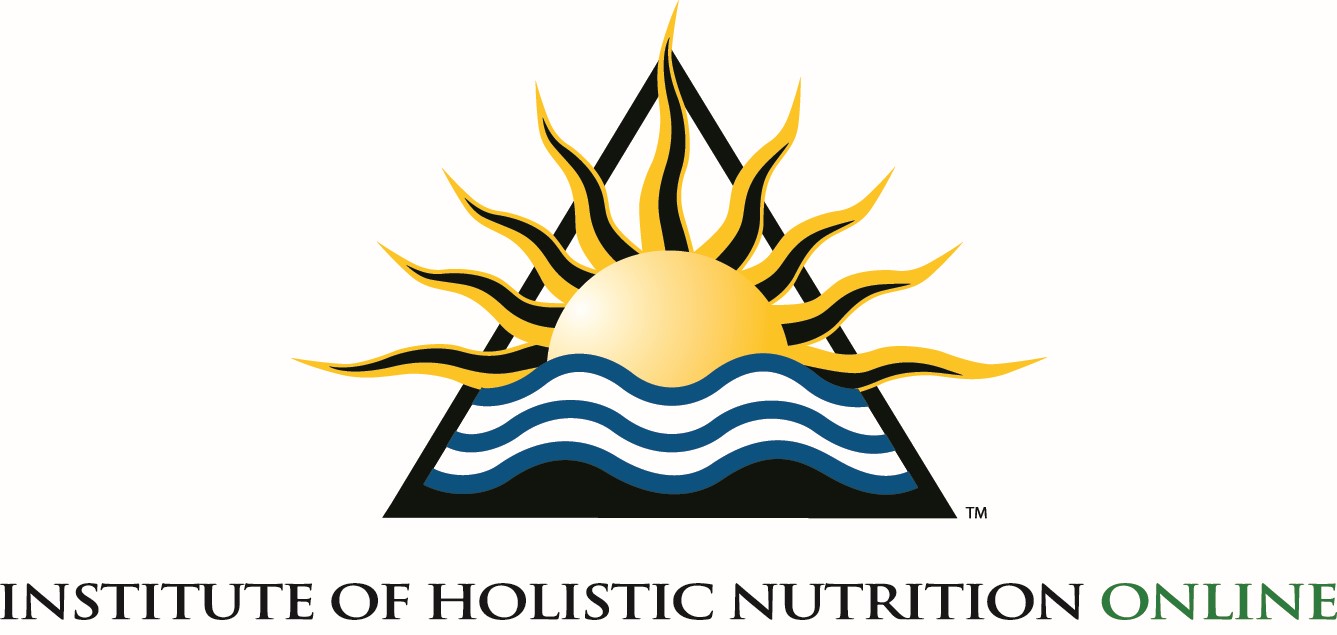
Anita Sauvé CNP, ROHP/RNCP
Department(s): Faculty
-
FN 001 Nutrition And Health: The Fundamentals
Nutrition and Health: The Fundamentals changes the lens for how the world of health and healing is viewed. It sets the stage for the examination of nature’s power within the holistic paradigm. It is IHN’s foundational course, providing students with an understanding of “food as information” and orthomolecular concepts in the prevention of disease and the acquisition of optimal health. Fundamentals offers students a framework for the study of micronutrients (vitamins and minerals), energy-yielding nutrients (carbohydrates, lipids, and proteins), metabolism, digestion, absorption, and energy balance. The syllabus provides an in-depth analysis of their functions, classification and dietary requirements within an evidence-based model. This course teaches the mechanics and principles of essential nutrients for restoring the body’s ability to heal.
Learning Outcomes• Assess the relationship between soil, cell, environment and human health
• Identify the structure and function of the GI tract, common digestive disorders, and links to major fatal diseases that are restored through the gut
• Explain functions of macronutrients and micronutrients, their requirements, sources, reasons for deficiencies, and use in disease prevention
• Understand the importance of water, antioxidants and detoxification
• The knowledge of how isolated nutrient interventions work against acute and chronic health conditionNutrition and Health: The Fundamentals is a foundational axis course that lays the groundwork of knowing how to determine root cause—a key tenant of functional nutrition. This course stresses the importance of knowing “by which mechanism” essential nutrients orchestrate ideal physiological functions and optimal health.
-
PHC 005 Preventive Health Care
Preventive Health Care emphasizes the significant factor of nutrition in the prevention of disease states. This course explores how proper nutrition can protect against or reverse many ailments including stress, inflammation, immune deficiencies, compromised brain health, inflammatory bowel disease, obesity, asthma, multiple sclerosis, diabetes, atherosclerosis, high blood pressure, arthritis, and cancer. Students will be exposed to current research developments and trends on phytochemicals, antioxidants, and nutraceuticals. Special attention in this course is given to the management of diseases of the cardiovascular system. This course instructs students to become familiar in detail with natural health strategies, dietary modifications, and supplement protocols to treat, prevent and reverse degenerative conditions. Students are taught and evaluated on specific dietary and lifestyle protocols in the prevention of disease.
Learning Outcomes:
• Understand the holistic viewpoint on the etiology of degenerative disease
• Develop protocols for specific health conditions through the use of nutrition, lifestyle changes, therapeutic modalities, and nutraceuticals
• Gain insight into the importance of why managing stress is critical for lowering the risk of disease and creating resilience
• Exposure to evidence-based nutrition research to demonstrate preventive strategies in acute and chronic health conditionsPreventive Health Care instructs future practitioners to recommend highly customized client protocols for a broad range of health conditions through the use of natural nutrition, lifestyle, holistic therapies, and supplementation. This course highlights the centrality of digestive health in the management of stress.
-
CD 011 Comparative Diets
Comparative Diets provides a critical assessment of the many therapeutic benefits and limitations of several alternative diet approaches, including low-carb diets, high-protein diets (Paleo Diet, Dr. Atkins, Keto, Carnivore), Plant-based approaches (Vegetarian, Vegan, Fruitarian, Raw Food, Rainbow), Longevity and Cultural diets (Okinawa, Mediterranean, Macrobiotic, Fasting), Condition-based diets (Glycemic Index, Intermittent Fasting, Food Combining, Low-FODMAP-Fermentable Oligosaccharides, Disaccharides, Monosaccharides and Polyols, GAPS-Gut and Psychology Syndrome, AIP-Autoimmune Protocol). This course will also address, in detail, the main detoxification diets from caffeine, alcohol, and nicotine. Students are taught and evaluated on succinctly identifying dietary imbalances as well as analyzing micronutrient propositions to design custom health-promoting diets and lifestyle programs.
Learning Outcomes:
• Explore kinetics of living systems, the law of opposites and the effects on the body and feelings of certain foods, the meaning of cravings
• Distinguish the models of food dynamics including expansive/contracting and acid/alkaline food products
• Describe how holistic individuality, metabolic typing, and the blood type diet are rooted in personalized biochemistry
• Explain the benefits of cold-pressed juice to address both acute and chronic health conditions and increase vitality
• Develop insights into the fundamental knowledge of mechanistic principles and complementary effects of several alternative diet regimens on healthComparative Diets informs future practitioners to recommend specific dietary protocols that are determined by biochemical individuality. To promote optimal health, this course instructs practitioners to safely and effectively recommend nourishing and cleansing diets.
-
NLS 010 Nutrition Through The Life Span
Nutrition Through the Lifespan addresses macro and micronutrient needs based on the lifespan model. A healthy nutritional status is vital throughout every stage, supporting pregnancy outcomes, growth, and aging. This comprehensive course begins with the foundations of essential nutrients for fertility and pregnancy; pediatrics including lactation with particular attention to infant feeding in the first year; navigating childhood nutritional demands; to adolescence including allergies and disorders as they relate to the repercussions of nutritional deficiencies. Early adulthood, midlife and mature adulthood for women’s and men’s health is explored, adding lifestyle and environmental factors that contribute to optimal health at each life stage. Support for nutritional challenges faced in geriatric nutrition round out the program. This course introduces students to the etiology and symptoms of common health conditions that are a key determinant of nutritional status. Evaluations through tests and case studies examine individualized dietary requirements, giving students the insight and ability to design optimal nutrition, supplement and lifestyle guidance for clients throughout their stages of life.
Learning Objectives:• To understand nutritional choices impact overall health and vitality, for all age groups and their related conditions• Students will develop protocols that include dietary, detox, supplementation and lifestyle recommendations at all stages• To gain an understanding of the significant nutritional needs for optimal pregnancy, growth, and development• To analyze and address contributing factors in the elimination of food allergies and intolerances, particularly for children• Address the imperative nature of optimal digestive health, at all stages
Nutrition Through the Lifespan contributes to keen insights into the lifespan model to address conditions and imbalances. Using a case study approach, this course is highly applicable, giving students the opportunity to research and develop key protocols for diverse age ranges.
-
NS 003 Nutritional Symptomatology Part I
Nutritional Symptomatology Part 1 introduces students to the foundations of clinical nutrition by interpreting physiological symptoms and their relationships to nutritional deficiencies, excesses and toxicities. This course introduces the interrelationships of nutrients and the critical role they play in determining optimal health. Students will develop foundational, as well as condition specific, protocols to restore the body’s balance. This course trains students to understand how physiological symptoms reflect and determine an individual’s nutritional status. Concepts taught include the essential principles of biochemical individuality through i.e. genetics, environment, microbiome, to see each client, and themselves, as truly unique. Students are taught to produce, and are evaluated on, the completion of clinical case study sets.
Learning Outcomes:
• Gain insight into physiological symptoms associated with nutrient deficiency
• Develop professional food, supplement, lifestyle and detox protocols as they relate to specific clinical symptoms
• Learn detailed explanations of underlying causes of disease and their relationship to food from a cellular to systems perspective
• Understand how to develop comprehensive strategies with a focus on natural remedies for resolving common and complex issuesNutritional Symptomatology Part 1 explores the process of holding consultations using a variety of practitioner-level assessment tools to move clients towards favourable outcomes. Students learn the critical role that biochemical individuality plays in determining results-based personalized nutrition.
-
NS 003 Nutritional Symptomatology Part 2
Nutritional Symptomatology Part 2 is an advanced course that builds on the foundational knowledge gained in Nutritional Symptomatology Part 1. This course provides students with a thorough knowledge of the underlying causes of disease and methods to prevent and address them. Practical assessment tools such as the Nutribody Questionnaire, complete Lifestyle and Health History Assessment Forms (i.e. diet, supplementation, medications, activity levels, habits, work, sleep, stress, mindset), pH Testing, Basal Temperature Tests and Hormonal Testing are discussed in their application to clinical nutrition. This course covers complicated symptomatology that informs the development of supplementation, diet, and lifestyle protocols for more complex conditions, including digestive challenges like leaky gut, dysbiosis, and inflammatory bowel states, endocrine dysfunctions with focus on estrogen dominance, adrenals and thyroid, liver and kidney detoxification/support as well as immune system issues, including autoimmune diseases and cancer. Students are taught and evaluated on the design of intricate clinical protocols addressing chronic health conditions.
Learning Outcomes
• Research and prepare specific strategic plans targeted to resolve chronic conditions to restore homeostasis from a diseased to a healthy state• How to put together all the pieces of your client’s puzzle through what they write on forms and what shows from assessments. Learn to tune in to the complete picture and connecting the dots. Build skills in increasing compliance.• Why opening the doors to the channels of elimination (kidneys, bowel, skin, lungs, liver, and lymphatic) is a crucial first step in healing• Furthering the knowledge on optimizing digestion and clearing waste through the pathways of elimination• Implementation of the five steps to heal the gut concept of, “remove, replace, reinoculated, repair and rebalance”, through the use of customized supplementation (micronutrients, herbals, phytochemicals, homeopathy), lifestyle, environment, and diet• How to asses hormonal imbalances and best approach to overcome various conditions linked to hormone dysregulation and autoimmune diseases• Become comfortable with addressing various cancer scenarios, where a supportive or integrative approach may be quite beneficial to the client• How to develop a multifaceted strategy to resolve many common and complex client cases• When to propose other healing modalities, such as (but not limited to) colon hydrotherapy, coffee enemas, lymphatic massages, CBT, somatic therapy, reflexology, acupuncture, breathwork, and stress reduction modalities that may be helpful for clientsNutritional Symptomatology Part 2 strengthens protocols developed by practitioners who are trained in advanced clinical assessment tools. This course highlights the necessity for critical thinking and evidence-based research in application to chronic health concerns.
